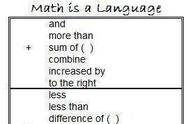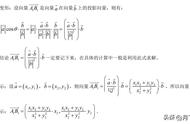Hello! I'm John Russell.
大家好!我是约翰·拉索尔。
Do you know someone who acts different when other people are around?
你知道有些人会在周围有人的时候表现得不一样吗?
For example, they act good when a teacher is around...and then they act wild as soon as the teacher is not there.
例如,他们在老师在的时候表现得很好......然后老师一走他们就表现得很放肆。
Grammatical endings can be like our bad students.
词尾可能就像我们的坏学生。
These endings sound one way in one situation, and different in another situation.
这些词尾在某种情况下是一种发音,而在另一种情况下是另一种发音。
This is particularly true of the regular past tense.
在过去式的规则变化中尤其是这样。
I'll explain.
我来解释。
The regular past tense is spelled with an -ed ending.
过去式的规则变化指的是以 -ed 结尾的词。
But this -ed ending sounds different in different words.
但是 -ed 结尾在不同的单词中发音不同。
Consider these two words: Liked, loved.
想想这两个词:liked,loved。
In the word liked, the -ed ending sounds more like a /t/.
在单词 liked 中,-ed 词尾听起来更像 /t/。
Liked. But in the word loved, the -ed ending sounds more like a /d/.
Liked。但是在单词 loved 中,-ed 词尾听起来更像 /d/。
Loved. Why is that?
Loved。为什么呢?
Do English speakers randomly choose how an ending should sound?
说英语的人是随机选择词尾的发音吗?
No, the answer comes down to voicing.
不是,答案在于发音。
If the last letter in a word ends in a voiced consonant or vowel sound, the -ed ending is pronounced as /d/.
如果单词的最后一个字母是浊辅音或元音,那么 -ed 词尾就读作 /d/。
In the word love, /v/ is voiced.
在单词 love 中,/v/ 是浊音。
So, the grammatical ending sounds like /d/.
所以词尾的发音是 /d/。
If the last letter of a word ends in a voiceless consonant, the e is silent and the letter d is pronounced as /t/.
如果单词的最后一个字母是清辅音,字母 e 不发音,那么字母 d 读作 /t/。
That is why like has a /t/ sound in the past tense.
这就是为什么 like 的过去式有 /t/ 音。
Liked. That's all for today!
Liked。今天就到这里!
Keep up the good work.
继续努力。
,














